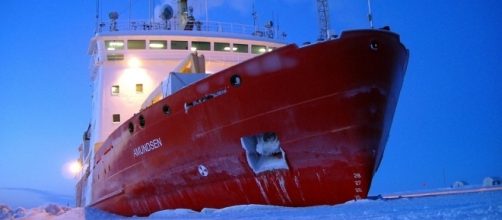You can go ahead and file this one under "can't make this stuff up." A Canadian research expedition set to begin the first leg of its journey to study the effects of climate change in the Arctic has had to cancel the trip. The reason? Climate change.
Research on hold
The Canadian Coast Guard icebreaker vessel CCGS Amundsen was set to take a team of researchers to study the impact of climate change on Arctic marine and coastal ecosystems. Before they got too far, they started receiving calls from fishing boats and ferries that were trapped off the northern coast of Newfoundland.
Due to warming temperatures in the Arctic, ice that is normally found in the high Arctic had melted and broken off. Because the ice was now thinner and more mobile, it was able to travel further south, causing the conditions that now left boats and tankers stranded off the coast. The CCGS Amundsen has been helping the Coast Guard conduct search and rescue efforts while taking some time to further study the rogue Arctic ice.
The expedition is set to pick back up in July, but chief scientist David Barber worries that it's simply not enough, pointing out that such situations are indicative of how ill-prepared we are for the effects of climate change. He also couldn't help but note the irony of having the climate change be the culprit that is preventing them from studying climate change.
The 4-year, $17 million study included 40 scientists from five Canadian universities and was led by the University of Manitoba. The team plans to be ready to start again in July.
Where does Trump stand?
Attempts to combat climate change seemed to be moving in a positive direction when world leaders, including former U.S. President Barack Obama, came together to pass the Paris Climate Agreement, each vowing to reduce carbon emissions by a certain percentage in their country.
However, U.S. President Donald Trump has decided to pull the U.S. out of the agreement. While Trump has tweeted many times about his view that climate change is a hoax, his White House is still having trouble locking down a position on the topic, choosing instead to pretend the subject hadn't yet come up with the President.
Unfortunately for President Trump, the agreement is not so easy to just slink away from. All countries that signed the agreement are on the hook for their promises until November 4, 2020, which pushes up against the end of Trump's first term. If he loses reelection or simply doesn't even make it to reelection, he will have very little time to actually proceed with his plan to back out.


